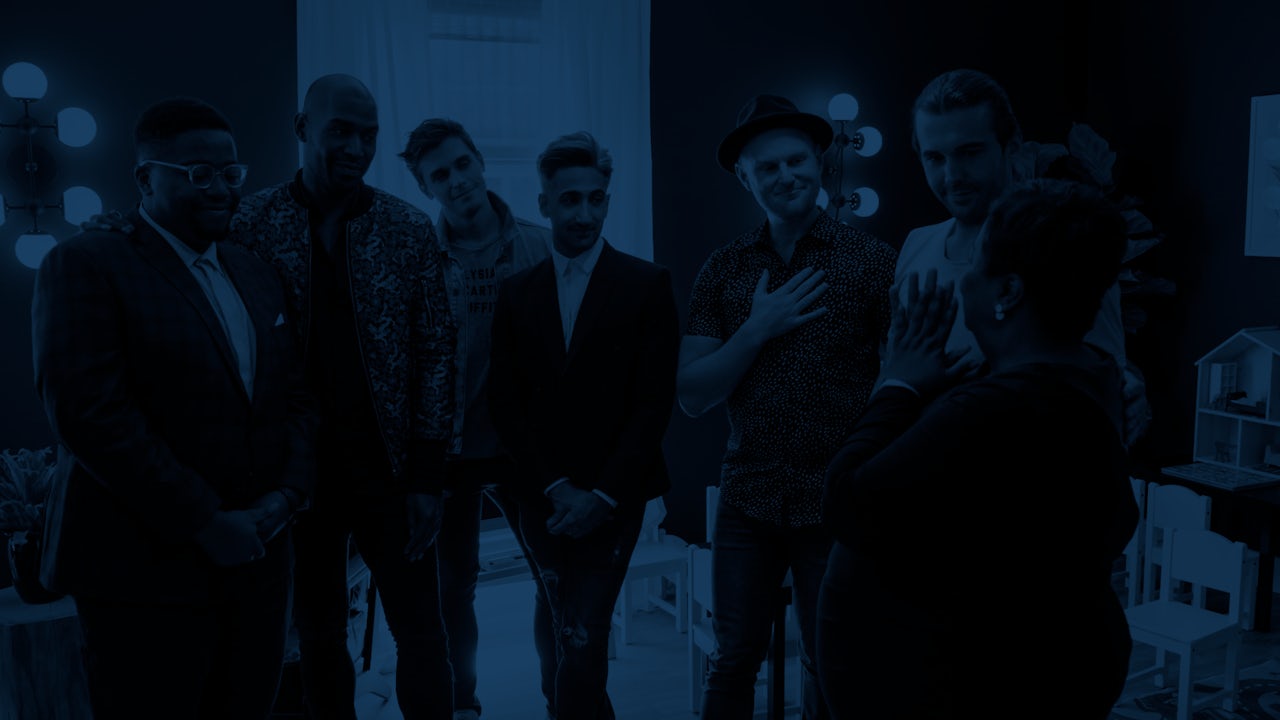The hit Netflix show Queer Eye is a seemingly bottomless well of positivity, with each episode providing viewers any number of Life Lessons to pick from. There’s “Be Yourself,” perhaps best conveyed by grooming expert Jonathan Van Ness. There’s “Find Love in Community,” which is reinforced by the cast of friends, family, and “nominators” who are called on to give depth and support to each episode’s subject. But the message that spoke loudest to me as I watched this latest season of Queer Eye, which again is set in Georgia, was the one that tells us “Anyone can get up and keep moving forward.”
As has been noted several times since the show, a revival of the early aughts version, first premiered in February, Queer Eye stands firmly in the comfort-food TV genre. It’s something to turn to when you want a sunny distraction or a nice, easy cry. And while it is definitely a makeover show, it also regularly acts as a tutorial. The Fab Five — the show’s hosts, “experts,” and mentors — have joined fellow queer inspirers Tim Gunn and RuPaul as television’s sympathetic godparents. They teach everything from style to confidence, how to properly shave and how to make a delicious nut appetizer, and, multiple times, how to do a “French tuck.” The show also succeeds in humanizing gay men. As the reboot’s fashion expert, Tan France, proclaimed: “The original show was fighting for tolerance. Our fight is for acceptance.”
More so than in Season 1, we see the Fab Five being more vulnerable, stepping down from their teaching posts to embrace their own unknowing. This was evidenced in Season 2’s first episode, set in the town of Gay, in which interior design expert (and arguably hardest-working cast member) Bobby Berk explains to a church deacon named Tammye the trauma that keeps him from returning to religion. In that same first episode, chef Antoni Porowski forgoes his normal cooking lesson (the value of which was much-debated after Season 1 premiered) to learn how to make Tammye’s pasta salad.
We see the Five as students again in Episode 5 when the show’s “culture expert” Karamo Broan accompanies Skyler, a trans man, to get the gender marker on his driver’s license changed — something the Athens resident was barred from doing before his top surgery. “After my time with Skyler, I’m reminded of how much more support I need to be giving my trans brothers and sisters,” Broan says.
Still, the Fab Five have their shortcomings. Jonathan allows no man to keep his beard. Their lighthearted critiques of subjects’ homes sometimes come off as a little judgy, if not overbearing. Tan, we learn, has much to learn about being an ally to trans people in his communities. "I feel stupid. I always looked at trans people and I thought… why are you putting yourself through [transition]?” he admits after a one-on-one conversation with Skyler. And indeed one of the season’s disappointments comes in the first episode when Tammye, the show’s first woman subject, briefly premieres a new outfit for the guys but doesn’t have her own fashion transformation or new wardrobe segment as usual. It’s a missed opportunity for Tan to show more range in his makeovers or, as the other Fab member sometimes do, bring on someone from whom they can both learn. The Fab Five, we see, are not perfect and all-knowing. But the show has a forgiving and aspirational heart.
Ultimately, the potential for failure among the subjects looms. But Queer Eye cushions those doubts in overwhelming hopefulness. The Fab Five makes us believe — or at least want to believe — that you can change your life in a week. And even if you don’t succeed, there will be people to support you and, perhaps, help you make a warm nut appetizer.

